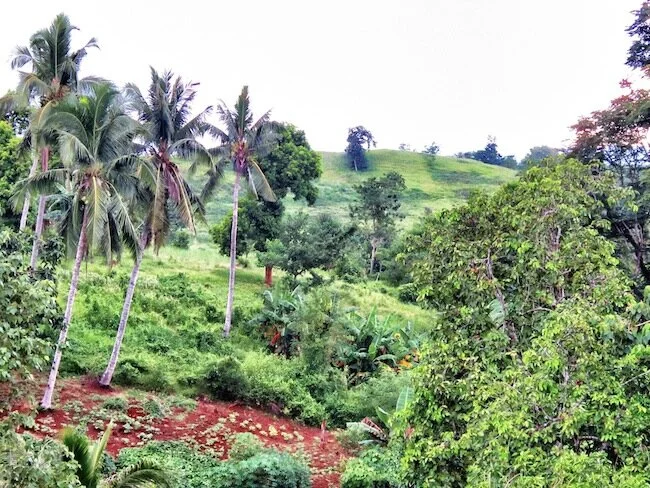story and photos by Lori Marquardson
So many reasons for going to Ecuador, but being stuck on a bus full of local Evangelical Christians in a mudslide was not one of them. Sometimes you just have to go with the flow.
I had been backpacking alone through Ecuador and, deciding that a few days exploring the Amazon jungle was in order, made arrangements to meet up with a small group in the dusty oil frontier town of Lago Agrio. From there we would go to the Cuyabeno Nature Reserve for a few days of roughing it with iguanas, howler monkeys, piranhas and blue morpho butterflies.
 River reflections, Cuyabeno Nature Reserve, Ecuador.
River reflections, Cuyabeno Nature Reserve, Ecuador.
A cool drizzle fell as I boarded the overnight bus in Quito. The driver’s personal touches of green fringe and dangling images of saints above the steering wheel couldn’t mask that the bus was more contraption than road-worthy vehicle. My fellow passengers were mostly short and dark, with a number of women wearing the typical Andean dress of black bowler hats, full skirts and rubber sandals while I, the obvious foreigner on board, sported beige zip-off pants and a purple windbreaker. We headed northeast, following the twisting mountainous roads leading out of the city, and despite the jolting motion, I drifted off.
At some point, I came to: the bus was not moving, no engine running, nada. I could see the driver had relaxed into what was definitely a non-driving position: head tilted back, mouth agape, arms crossed over his chest, and legs spread-eagled. Strange, but having been in South America for quite some time, I had experienced unexplained delays before and generally they weren’t show-stoppers, so I tried to fall back asleep. Then came a huge rumble outside, followed immediately by murmuring voices inside.
“What the hell is that?” I said to no one in particular and, being in the front row, I leaned over to the driver, and asked “¿Qué está pasando? “
“Hay un derrumbe.” A landslide. Hmmm, that did not sound good.




















